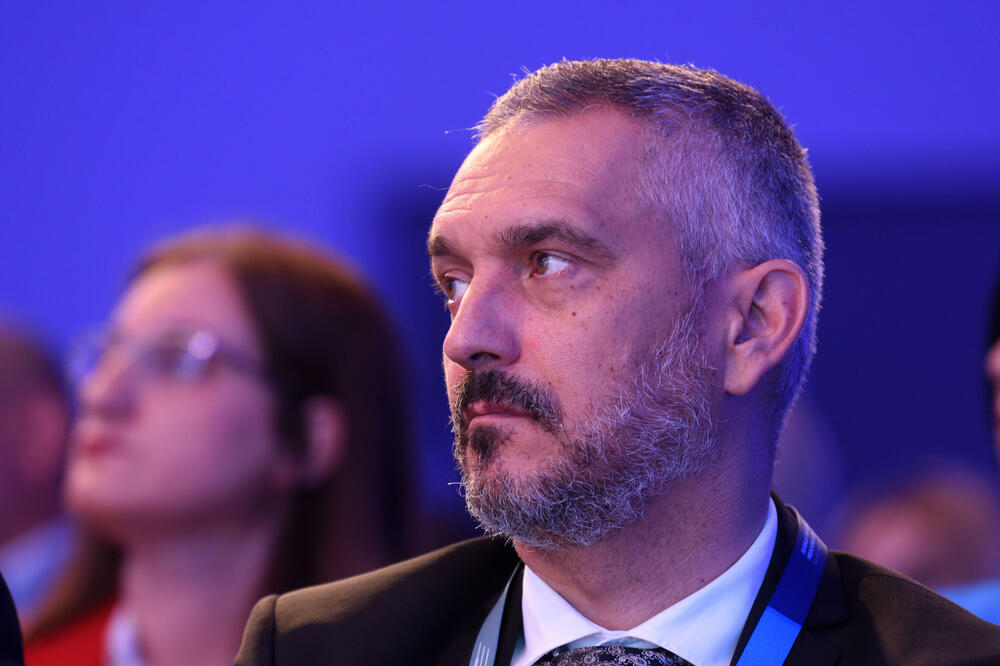Lawyer Siniša Gazivoda filed today a new complaint with the Administrative Court against the decision of the Government of Montenegro on the dismissal of Zoran Brđanin from the position of director of the Police Administration.
"By the impugned decision of the Government of Montenegro, the prosecutor was illegally dismissed from the position of director with an incorrect and unfounded explanation that the Committee for Security and Defense had not previously accepted two special periodical reports of the Director of the Police from 2022. However, both mentioned special reports, due to the fact that they were not considered in a timely manner by the Committee for Security and Defense in the last parliamentary convocation are considered accepted, which was confirmed by the Administrative Court in judgment U 12564/2023 with an identical legal position as in judgment U 3274/2021 regarding the appointment of the former director of the National Security Agency," the lawsuit states which "Vijesti" had insight into.
He specifies that by passing the decision on the dismissal, the Government acted contrary to the regulation which stipulates that the decisions made in the administrative dispute are binding.
"The defendant could not, should not, and cannot freely appreciate the content of the verdict, but had and still has the legal obligation to be bound by the legal understanding and remarks of the court expressed in the verdict. In defense of the rule of law, i.e. the law and the court verdict, the president of the defendant persisted for a time - of the Government of Montenegro when on January 31.01, 2024 he publicly stated the following: "I think that Mr. Brđanin is in full term. I would not like to play gibberish like the 43rd Government...", the lawsuit adds.

Gazivoda warns that the European Court of Human Rights, in terms of the test from the Vilho Eskelinen judgment, pointed out that nothing prevents it from qualifying a certain domestic body outside the framework of the judiciary as a "court". "Some administrative or parliamentary body, such as the Government of Montenegro, i.e. the current Committee for Security and Defense of the Parliament of Montenegro, can also be viewed as a 'court', as a result of which Article 6 of the European Convention on Human Rights becomes applicable to civil servants' disputes about which the body decides", it is stated.
In relation to the actions of the Parliamentary Committee for Security and Defense, Gazivoda states that that body of the Parliament of Montenegro did not properly appreciate the mentioned special reports of the police director.
"The actions of the Board, that is, the procedure cannot be justified as compatible with the conditions of independence and impartiality according to Article 6 of the European Convention for the Protection of Human Rights. From the allegations of the Report of the Committee for Security and Defense on the consideration of two special reports of the Director of Police, the conclusion follows that they are in contradiction with the state of affairs in the special reports on the results of the Police in the fight against organized crime and corruption. It is obvious that the content of both reports was only formally, superficially, incorrectly and incorrectly interpreted by the Board. The Board does not at all explain the reasons and facts from which the justification for not accepting the special reports derives ", adds Gazivoda.
In the lawsuit, he emphasizes that the Committee and the Minister of Internal Affairs, as well as the Government, acted contrary to the Recommendations of the Committee of Ministers of the Council of Europe on good governance, according to which the principle of legal certainty, among other things, implies that public authorities should act in accordance with the principle, i.e. the principle of legal security, and that no retroactive measures may be taken.
Bonus video:




